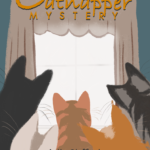Throughout history people have been admonished to “mind their p’s and q’s.” I’ve always equated the saying with being on your best behavior and using good manners. In this instance the phrase refers also to using the polite words “please” and “thank you.”
History says that during the 17th century pubs and taverns were the setting for another way of minding p’s and q’s. The barmaid or proprietor kept a chalked accounting on the wall to track the number of pints and quarts a customer had ordered.
In later years, students in school were warned to mind their “p’s” and “q’s” because of the similarity of the alphabet letters p and q. The two letters, p and q, could easily be confused and reversed when spelling and writing.
All these ways of minding your p’s and q’s have been valuable, and the meanings make sense. These meanings have served well, and there is no reason they should be retired. It will always be a good idea to say “please” and “thank you” and to be on your best behavior. It’s also in a person’s best interest to keep up with how many pints and quarts have been consumed and to check for letter reversals when writing. However, because the definition has evolved over the years, why stop there? There’s another way to renew this phrase so that it’s even more useful.
The updated version of minding your p’s and q’s would refer to “peace” and “quiet.” This would be a prompt for no loud talking, no yelling, and no anger. People would automatically use their “inside voices.” Minding your p’s and q’s would mean speaking in a kind tone of voice, even when there’s a disagreement. If the meaning included these two new words, i.e., peace and quiet, our world would be a much nicer place.
What other ideas do you have for expanding the meaning of minding your p’s and q’s?
This photo is the county road in northern Arkansas that runs past the house I grew up in. This image represents the concept of peace and quiet to me. When the world gets noisy and rude, I try to visualize this place.
<<<<<>>>>>






Leave a Reply